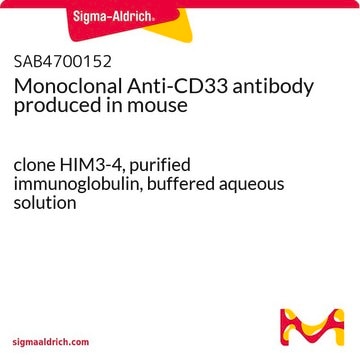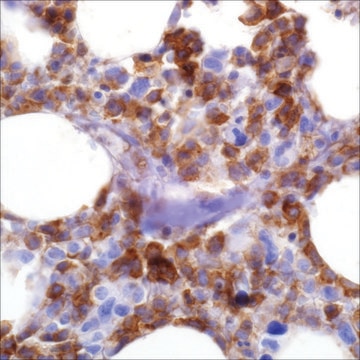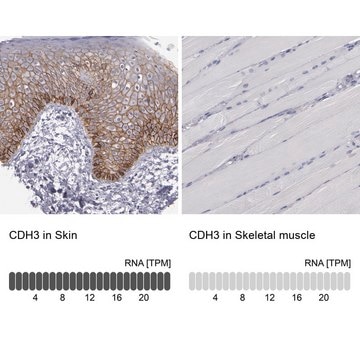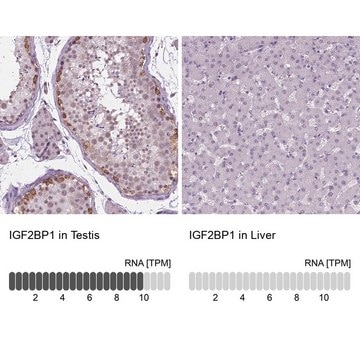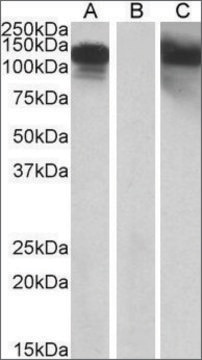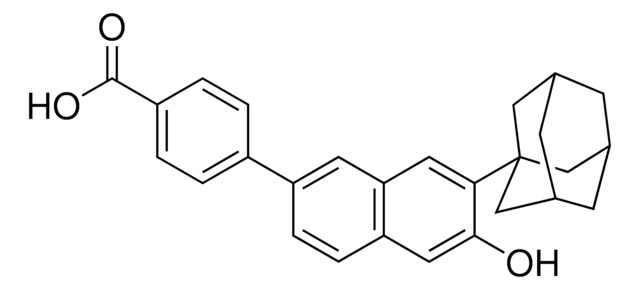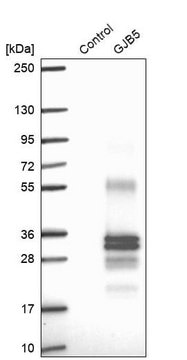SAB4700155
Monoclonal Anti-CD33-FITC antibody produced in mouse
clone WM53, purified immunoglobulin, buffered aqueous solution
Sign Into View Organizational & Contract Pricing
All Photos(1)
About This Item
UNSPSC Code:
12352203
NACRES:
NA.44
Recommended Products
biological source
mouse
Quality Level
conjugate
FITC conjugate
antibody form
purified immunoglobulin
antibody product type
primary antibodies
clone
WM53, monoclonal
form
buffered aqueous solution
species reactivity
nonhuman primates, human
technique(s)
flow cytometry: suitable
isotype
IgG1
NCBI accession no.
UniProt accession no.
shipped in
wet ice
storage temp.
2-8°C
target post-translational modification
unmodified
Gene Information
human ... CD33(945)
Related Categories
General description
Myeloid cell surface antigen CD33, (cluster of differentiation 33) also known as SIGLEC3, siglecs (sialic acid binding Ig-like lectins) and GP67, belongs to the CD33-related SIGLEC gene family. It is a type 1 transmembrane protein and contains two immunoglobulin-like extracellular domains, a single transmembrane area and two intracellular inhibitory motifs. The CD33 gene is mapped to human chromosome 19q13.41.
The antibody WM53 reacts with CD33, a 67 kDa type I transmembrane glycoprotein (immunoglobulin superfamily) expressed on myeloid progenitors, monocytes, granulocytes, dendritic cells and mast cells; it is absent on platelets, lymphocytes, erythrocytes and hematopoietic stem cells.
Immunogen
Human AML cells
Application
The reagent is designed for Flow Cytometry analysis of human blood cells using 4 μL reagent / 100 μL of whole blood or 106 cells in a suspension. The content of a vial is sufficient for 100 tests.
Biochem/physiol Actions
Association of CD33 (cluster of differentiation 33) with sialic acid-containing ligands causes suppression of proinflammatory pathways in monocytes and macrophages. It is mainly involved in anti-inflammatory signaling, cell adhesion and endocytosis functions. CD33 also works as a myeloid differentiation marker. Mutations in the CD33 gene are associated with Alzheimer′s disease susceptibility and acute myeloid leukemia treatment efficacy. In microglia, increase in the expression of CD33 decreases amyloid β peptide phagocytosis.
Features and Benefits
Evaluate our antibodies with complete peace of mind. If the antibody does not perform in your application, we will issue a full credit or replacement antibody. Learn more.
Physical form
Solution in phosphate buffered saline containing 15 mM sodium azide and 0.2% high-grade protease free BSA as a stabilizing agent.
Disclaimer
Unless otherwise stated in our catalog or other company documentation accompanying the product(s), our products are intended for research use only and are not to be used for any other purpose, which includes but is not limited to, unauthorized commercial uses, in vitro diagnostic uses, ex vivo or in vivo therapeutic uses or any type of consumption or application to humans or animals.
Not finding the right product?
Try our Product Selector Tool.
wgk_germany
WGK 2
flash_point_f
Not applicable
flash_point_c
Not applicable
Certificates of Analysis (COA)
Search for Certificates of Analysis (COA) by entering the products Lot/Batch Number. Lot and Batch Numbers can be found on a product’s label following the words ‘Lot’ or ‘Batch’.
Already Own This Product?
Find documentation for the products that you have recently purchased in the Document Library.
The "Alzheimer's disease signature": potential perspectives for novel biomarkers
Davinelli S
Immunity & ageing : I & A (2011)
Association of CD33 polymorphism rs3865444 with Alzheimer's disease pathology and CD33 expression in human cerebral cortex.
Walker DG, et al.
Neurobiology of Aging, 36, 571-571 (2015)
CD33 rs3865444 Polymorphism Contributes to Alzheimer's Disease Susceptibility in Chinese, European, and North American Populations.
Li X, et al.
Molecular Neurobiology, 52, 414-414 (2015)
Human-specific derived alleles of CD33 and other genes protect against postreproductive cognitive decline.
Schwarz F, et al.
Proceedings of the National Academy of Sciences of the USA, 113, 74-74 (2016)
Manasi Malik et al.
Human molecular genetics, 24(12), 3557-3570 (2015-03-13)
The CD33 single-nucleotide polymorphism (SNP) rs3865444 has been associated with the risk of Alzheimer's disease (AD). Rs3865444 is in linkage disequilibrium with rs12459419 which has been associated with efficacy of an acute myeloid leukemia (AML) chemotherapeutic agent based on a
Our team of scientists has experience in all areas of research including Life Science, Material Science, Chemical Synthesis, Chromatography, Analytical and many others.
Contact Technical Service